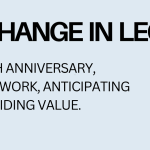Global law firm Pinsent Masons has partnered with AI SaaS leader Xapien to unveil a large-language-model-powered AI tool tailored for Anti-Money Laundering (AML) compliance. This solution promises to address key industry pain points, including escalating compliance costs, prolonged onboarding processes, and inefficiencies in risk prioritisation.
The tool is expected to slash onboarding timelines from “weeks to hours” by automating research and risk assessment. Analysts can rapidly clear low-risk clients, reallocating their expertise to complex, high-risk scenarios. Pinsent Masons’ general counsel, Andrew Cheung, said: “This tool revolutionizes AML by enhancing efficiency and focusing on high-risk matters, empowering firms to start client work sooner.”
Chris Green, CEO of Xapien, highlighted the growing shift in compliance from ‘Can we work with a client?’ to “Should we?”, observing: “This has created a ballooning industry of laborious and time-consuming background research. Our collaboration with Pinsent Masons represents a major advancement in the application of AI to solve these compliance challenges.”
While Pinsents and Xapien say this is a world first LLM in compliance, this is an area ripe for overhaul and Legal IT Insider has written about tools such as Legl Assist and you can find out more about that here: https://legaltechnology.com/2023/11/03/product-insights-legls-cdd-assist-leverages-gen-ai-to-save-10-15-of-time-on-client-due-diligence/ and in our podcast here: https://legaltechnology.com/2024/02/01/webinar-replay-the-implementation-journey-of-ai-with-legl-and-crispin-passmore/
Elsewhere, UK-based law firm Burges Salmon has partnered with AI startup Wexler as part of a new Digital Enablement Programme, which Burges Salmon says leverages GenAI, data, processes and technology to enhance client service delivery.
The programme includes a phased deployment of tools like Copilot for 365 and partnerships with technologies such as Wexler. Wexler is a litigation focused solution with AI-powered fact extraction and document creation. The firm’s dispute resolution team are utilising the technology for chronologies and fact analysis. To support lawyers with research, in the summer the firm also rolled out Search & Summarize Practical Law (previously Practical Law AI).
Emma Sorrell, Burges Salmon’s innovation manager, said: “Developing and launching the Digital Enablement Programme has been a collaborative and coordinated effort from a variety of people within the firm. It’s not just about AI; it encompasses a broader scope, focusing on how we can harness the potential of data-driven insights, technology and innovative approaches. In a landscape filled with excitement and promise, our goal is to carve out a path that aligns strategically with our firm and clients, and ultimately delivers meaningful outcomes.”
And finally, US intellectual property software vendor Anaqua has entered exclusive negotiations to be acquired by private equity house Nordic Capital. Nordic Capital will buy out Astorg, which has been the primary investor in Anaqua since 2019. According to Reuters, the deal is worth around $2.5bn.
Nordic Capital been in the market for over 20 years and has made 33 technology investments in companies with an aggregate enterprise value of circa €26bn. Fredrik Näslund, chief investment process officer and head of technology & payments at Nordic Capital praised Anaqua’s vision and track record, saying: “We look forward to supporting their next phase of growth as they redefine the IP management industry.”
Anaqua’s platforms, AQX and PATTSY WAVE, combine best-practice workflows, data analytics, foreign filings, and patent and trademark renewal payments. “This partnership will accelerate our growth and strengthen our market leadership,” said Anaqua’s CEO Bob Romeo.
The transaction will close Q1 2025 subject to regulatory approval. Latham & Watkins acted as legal advisor to Astorg and Anaqua on the transaction.











